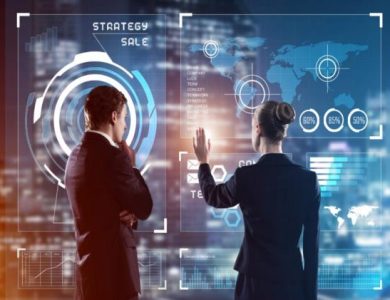How AI is Changing Our Lives?

Artificial Intelligence (AI) is increasingly becoming a part of our daily routines, influencing how we communicate, manage our homes, and even access healthcare. This technological advancement is not just about robots or complex algorithms; it significantly impacts our everyday experiences, making tasks more efficient and enjoyable. In this article, we will explore various ways AI is changing our lives, focusing on communication, smart homes, healthcare, transportation, and personalized services.
AI in Communication & Virtual Interaction
Tencent RTC (Real-Time Communication) is a cutting-edge platform that enhances virtual interactions through ultra-low latency video and audio capabilities. Imagine having a video call with a friend or colleague where the sound and image are perfectly synchronized, creating a natural conversation flow – whether you’re collaborating on a project, catching up with loved ones overseas, or consulting with a doctor remotely. trtc allows users to engage in real-time without frustrating delays, making virtual meetings feel as personal as face-to-face interactions, while also supporting innovative features like virtual try-ons for fashion, beauty, and even home decor previews.
AI-Powered Smart Homes
What Role Do Voice Assistants Play in Our Daily Lives?
Voice assistants like Tencent Xiaowei, Amazon Alexa, and Google Assistant have become integral to our daily routines, allowing us to control various aspects of our homes with simple voice commands. Imagine waking up in the morning and saying, “Good morning, Xiaowei,” to trigger your coffee maker, turn on the lights, and play your favorite morning playlist—all without lifting a finger. This level of convenience not only saves time but also enhances our overall lifestyle. These voice assistants can also manage our schedules by setting reminders, sending messages, or making calls.
How Do Automated Energy Savings & Security Systems Work?
Automated energy savings and security systems are another significant aspect of AI-powered smart homes. Smart thermostats learn your heating and cooling preferences over time, adjusting automatically to optimize energy consumption. For example, if you typically lower the temperature at night, your thermostat will learn this pattern and adjust accordingly, ultimately reducing your energy bills. This not only benefits your wallet but also contributes to environmental sustainability. Additionally, smart security systems equipped with AI can monitor your home in real-time, sending alerts if unusual activity is detected.
What Is Predictive Maintenance for Appliances?
Predictive maintenance is an AI-driven approach that anticipates when appliances may require servicing or replacement. Smart refrigerators, washing machines, and HVAC systems can monitor their performance and notify you of potential issues before they become significant problems. For instance, if your washing machine detects an unusual vibration, it can alert you to check for a possible malfunction. By utilizing data analytics and machine learning, predictive maintenance helps homeowners make informed decisions about repairs and replacements.
AI in Healthcare
How Is Remote Diagnostics & Telemedicine Changing Healthcare?
Remote diagnostics and telemedicine are revolutionizing how we access healthcare services. With the rise of AI-driven telehealth platforms, patients can consult with healthcare professionals from the comfort of their homes. Imagine having a video consultation with your doctor instead of waiting for hours in a crowded clinic. This convenience is particularly beneficial for those with mobility issues or those living in remote areas where access to healthcare facilities may be limited. And AI can assist in diagnosing conditions by analyzing patient data and symptoms.
What Are Wearable Health Monitors with AI Analysis?
Wearable health monitors equipped with AI analysis have gained popularity for their ability to track various health metrics in real-time. Devices like smartwatches and fitness trackers can monitor heart rate, sleep patterns, and physical activity, providing valuable insights into your health. For example, if your smartwatch detects an irregular heartbeat, it can alert you to seek medical attention, potentially preventing serious health issues. These wearables often come with companion apps that analyze the collected data and offer personalized health recommendations.
AI in Personalized Services
AI-driven personalized services are reshaping how we interact with various platforms, from shopping to entertainment. E-commerce websites utilize AI algorithms to analyze your browsing history and preferences, offering tailored product recommendations. For example, if you frequently purchase fitness gear, you might receive suggestions for the latest running shoes or workout apparel. This personalized shopping experience saves time and enhances customer satisfaction by presenting options that align with your interests. Streaming services like Netflix and Spotify also leverage AI to curate content based on your viewing or listening habits. Imagine logging into your favorite streaming platform and being greeted with a list of shows or songs that perfectly match your taste.
Conclusion
AI is undeniably transforming our lives in numerous ways, from enhancing communication and automating our homes to revolutionizing healthcare and transportation. As we continue to embrace these advancements, it’s essential to recognize the impact they have on our daily routines and overall well-being. The integration of AI technologies like Tencent RTC is making interactions more seamless, while smart home devices are improving our quality of life through convenience and efficiency. In healthcare, remote diagnostics and wearable monitors empower us to take charge of our health, leading to better outcomes.




